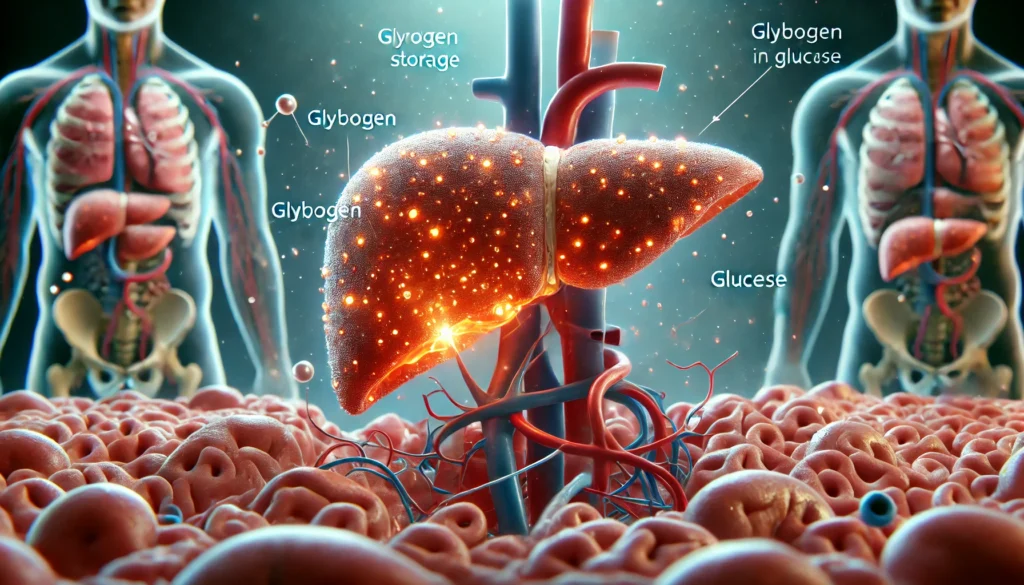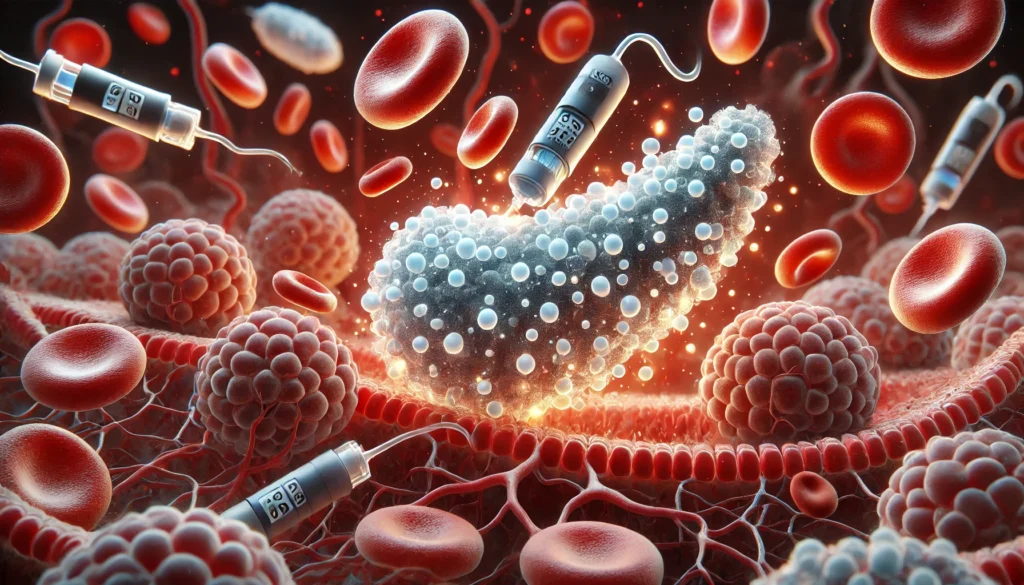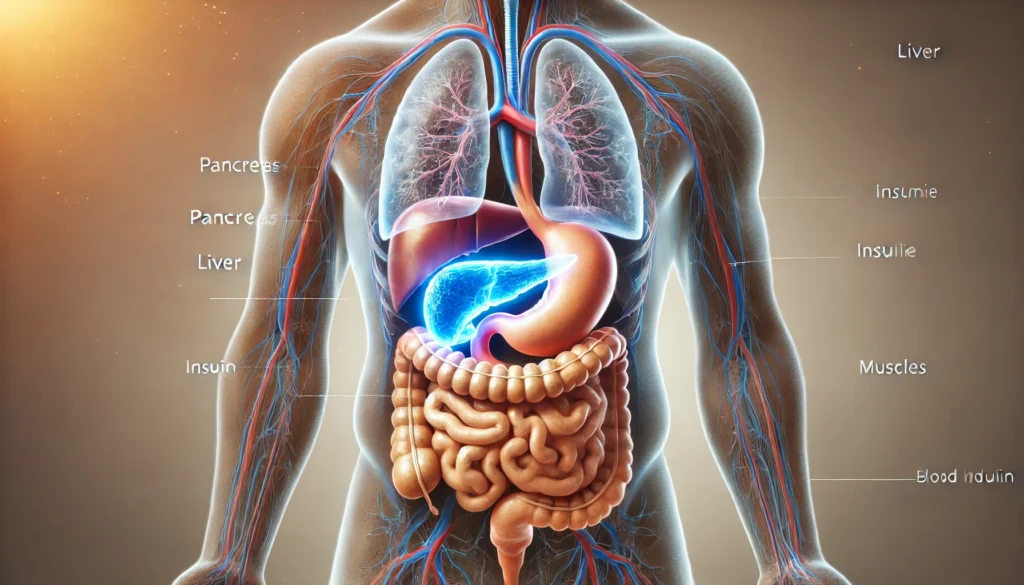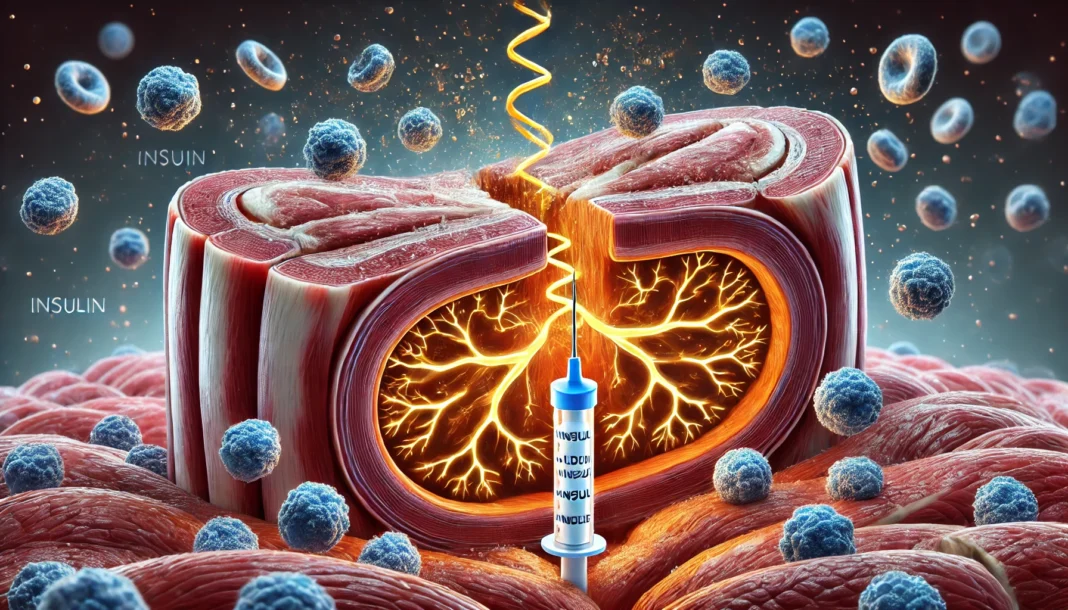The regulation of blood glucose levels is a complex and essential physiological process that ensures the body maintains a stable energy supply for cellular functions. The human body relies on precise mechanisms to keep blood sugar within a narrow range, as deviations can lead to serious health complications. Understanding what organ regulates blood sugar, how we regulate blood glucose levels, and the physiological processes involved in maintaining homeostasis is crucial for overall health. A detailed exploration of these factors sheds light on why maintaining stable blood sugar levels is essential for long-term well-being.
You may also like: How Diabetes Affects the Brain: Understanding Brain Fog, Memory Loss, and Mental Confusion from High Blood Sugar
The Role of the Pancreas in Blood Sugar Regulation
The pancreas plays a central role in controlling blood sugar levels, acting as the primary organ responsible for glucose homeostasis. It contains specialized clusters of cells known as the islets of Langerhans, which include beta cells that secrete insulin and alpha cells that produce glucagon. These two hormones work in opposition to maintain stable blood sugar levels throughout the day.
Insulin is released in response to rising blood glucose levels, typically after a meal. This hormone facilitates the uptake of glucose into cells, where it is used for energy or stored as glycogen in the liver and muscles. When blood sugar levels drop, glucagon is secreted to stimulate glycogen breakdown, releasing glucose back into the bloodstream. This delicate balance ensures that cells receive a steady supply of energy while preventing the dangerous fluctuations associated with hyperglycemia and hypoglycemia.
The pancreas also communicates with other organs, including the liver, muscle tissue, and fat cells, to coordinate glucose metabolism. Disruptions in pancreatic function can lead to metabolic disorders such as diabetes mellitus, underscoring the importance of this organ in regulating blood sugar levels effectively.

How the Liver Maintains Blood Glucose Stability
The liver plays a vital role in managing blood sugar levels, serving as a reservoir for glucose storage and release. One of its primary functions is to store excess glucose in the form of glycogen. During periods of fasting or between meals, the liver converts glycogen back into glucose, ensuring a steady supply of energy for the body. This process, known as glycogenolysis, is crucial for preventing blood sugar levels from dropping too low.
In addition to glycogenolysis, the liver engages in gluconeogenesis, a metabolic pathway that synthesizes glucose from non-carbohydrate sources such as amino acids and glycerol. This mechanism is particularly important during prolonged fasting, intense exercise, or states of metabolic stress, allowing the body to maintain energy balance even in the absence of dietary glucose intake.
The liver’s ability to regulate glucose levels is influenced by hormonal signals from the pancreas. Insulin promotes glycogen synthesis in the liver when blood sugar is high, while glucagon stimulates glycogen breakdown and gluconeogenesis when glucose levels are low. A well-functioning liver is essential for preventing both hyperglycemia and hypoglycemia, making it a key player in metabolic health.
The Role of Glucagon vs. Glycogen in Blood Sugar Control
Understanding the distinction between glucagon and glycogen is essential for grasping how the body manages blood sugar levels. While these terms are sometimes confused, they refer to different components of glucose metabolism with distinct functions.
Glucagon is a hormone produced by the alpha cells of the pancreas. Its primary role is to raise blood glucose levels by signaling the liver to break down glycogen and release glucose into the bloodstream. This process is crucial when blood sugar levels decline, such as during fasting, vigorous physical activity, or between meals.
Glycogen, on the other hand, is a stored form of glucose found mainly in the liver and muscles. It serves as an energy reserve that can be rapidly mobilized when glucose demand increases. Glycogen storage allows the body to maintain a stable blood sugar supply without requiring constant dietary carbohydrate intake.
The interplay between glucagon and glycogen is a fundamental aspect of glucose homeostasis. When blood sugar drops, glucagon signals the liver to convert glycogen into glucose, ensuring adequate energy availability. Conversely, when glucose is abundant, insulin promotes glycogen synthesis, storing excess glucose for future use. Disruptions in this balance can lead to metabolic disorders, highlighting the importance of maintaining proper glucagon and glycogen function.
How Glucose Enters the Bloodstream and Its Metabolic Fate
Glucose enters the bloodstream primarily through the digestion and absorption of dietary carbohydrates. When carbohydrates are consumed, enzymes in the digestive tract break them down into simple sugars, including glucose. This glucose is then absorbed through the intestinal lining and transported into the bloodstream, where it becomes available for cellular energy production.
The rate at which glucose enters the blood depends on several factors, including the type of carbohydrate consumed, fiber content, and the presence of other macronutrients. Simple sugars and refined carbohydrates tend to cause rapid spikes in blood sugar, while complex carbohydrates with fiber result in a slower, more gradual release.
Once in the bloodstream, glucose is distributed to cells throughout the body, where it is either utilized immediately for energy or stored for later use. Insulin plays a crucial role in facilitating glucose uptake into cells, particularly in muscle and fat tissue. Without proper insulin function, glucose remains in the bloodstream, leading to elevated blood sugar levels and potential metabolic complications.
In addition to dietary intake, glucose can also be synthesized by the liver through gluconeogenesis. This process ensures that the body has an adequate supply of glucose even in the absence of food intake. The ability to regulate glucose entry into the bloodstream and its subsequent utilization is a key aspect of metabolic health.
Why Blood Sugar Regulation Matters for Overall Health
Maintaining stable blood sugar levels is essential for overall health, as imbalances can lead to a range of metabolic disorders. Chronic high blood sugar, or hyperglycemia, is associated with insulin resistance, type 2 diabetes, and cardiovascular disease. On the other hand, low blood sugar, or hypoglycemia, can cause dizziness, confusion, and severe energy deficits.
Blood sugar stability is particularly important for brain function, as glucose is the primary energy source for the central nervous system. Fluctuations in blood glucose levels can impair cognitive function, mood, and overall mental clarity. Additionally, excessive glucose levels can lead to oxidative stress and inflammation, contributing to long-term health complications.

Frequently Asked Questions About Blood Sugar Regulation
1. How does emotional stress impact how we regulate blood glucose levels?
Chronic emotional stress can significantly affect how we regulate blood glucose levels, even in people without diabetes. Stress hormones like cortisol and adrenaline trigger the liver to release stored glucose, raising blood sugar levels unexpectedly. What’s less commonly discussed is how psychological stress interferes with insulin sensitivity, making it harder for cells to absorb glucose efficiently. Understanding how we regulate blood glucose levels requires recognizing that it’s not only about food and exercise—mental health plays a crucial role. Stress management strategies such as mindfulness, deep breathing, and therapy can support how we regulate blood glucose levels over time.
2. What organ regulates blood sugar during intense physical activity?
During strenuous exercise, the liver—what organ regulates blood sugar most actively—steps up its glucose production to maintain energy supply. While the muscles initially use their stored glycogen, prolonged activity requires the liver to convert amino acids and lactate into glucose through gluconeogenesis. This process demonstrates how what organ regulates blood sugar adapts dynamically based on physical demands. Interestingly, the more conditioned your body becomes through regular activity, the more efficiently the liver performs this role. So when asking what organ regulates blood sugar under physical stress, the liver’s adaptability is central to sustained performance.
3. Where does sugar enter the blood when drinking fruit juice vs. eating whole fruit?
Where sugar enters the blood differs slightly based on how quickly carbohydrates are digested. With fruit juice, sugars are rapidly absorbed in the small intestine due to the lack of fiber, causing a quick spike in blood glucose. In contrast, when eating whole fruit, fiber slows digestion, so the sugar enters the blood more gradually. This difference highlights not only where sugar enters the blood but how food form and fiber impact blood sugar dynamics. For people managing blood glucose levels, understanding where sugar enters the blood and how absorption speed varies is essential for making better dietary choices.
4. How do hormones influence glucagon vs glycogen activity?
The roles of glucagon vs glycogen are often misunderstood. Glucagon is a hormone, while glycogen is a stored form of glucose in the liver and muscles. When blood sugar drops, glucagon signals the liver to break down glycogen into glucose, which is then released into the bloodstream. The hormonal regulation of glucagon vs glycogen is also affected by other endocrine signals, such as cortisol and epinephrine during stress. Appreciating the hormonal interplay in glucagon vs glycogen dynamics reveals how finely tuned the body’s energy regulation system is beyond just food intake.
5. What organ controls blood sugar overnight?
Overnight, it’s primarily the liver—what organ controls blood sugar most continuously—that keeps blood glucose stable. It releases glucose into the bloodstream via glycogenolysis or gluconeogenesis, ensuring the brain and other organs have a constant energy supply during fasting. What organ controls blood sugar without conscious input is especially important during sleep, when eating isn’t possible. In people with insulin resistance, this nocturnal regulation may become dysfunctional, leading to fasting hyperglycemia in the morning. Thus, understanding what organ controls blood sugar while we rest is crucial for addressing metabolic imbalances early on.
6. How does aging affect how we regulate blood glucose levels?
As we age, changes in muscle mass, insulin sensitivity, and hormonal balance alter how we regulate blood glucose levels. Sarcopenia, the natural decline in muscle tissue, reduces glucose uptake efficiency, contributing to higher blood sugar. Simultaneously, aging can impair the function of the pancreas and liver—two organs central to how we regulate blood glucose levels. This makes older adults more susceptible to type 2 diabetes and related metabolic disorders. Personalized strategies, including resistance training and targeted nutrition, can help optimize how we regulate blood glucose levels as we age.
7. How can gut health influence what organ regulates blood sugar?
Emerging research shows that gut microbiota can affect what organ regulates blood sugar by altering metabolic signals sent to the liver and pancreas. A healthy gut produces short-chain fatty acids like butyrate, which enhance insulin sensitivity and glucose metabolism. These compounds may help modulate how what organ regulates blood sugar responds to dietary intake. Dysbiosis, or an imbalance in gut bacteria, has been linked to insulin resistance and abnormal glucose levels. So improving gut health might indirectly support what organ regulates blood sugar, offering new avenues for holistic diabetes prevention.
8. Can hydration status impact where sugar enters the blood?
Yes, hydration status can affect how and where sugar enters the blood by influencing blood volume and digestive function. When dehydrated, blood becomes more concentrated, which may amplify post-meal blood sugar spikes. Furthermore, dehydration slows gastric emptying, slightly delaying where sugar enters the blood. Over time, inadequate hydration can even contribute to insulin resistance. Maintaining consistent fluid intake ensures a more stable environment where sugar enters the blood in a controlled manner, making hydration a simple yet powerful tool in blood glucose management.
9. What’s the long-term impact of imbalances in glucagon vs glycogen function?
Chronic imbalances in glucagon vs glycogen processes can contribute to sustained hyperglycemia or hypoglycemia, depending on the direction of the dysfunction. For instance, overproduction of glucagon in type 2 diabetes can cause excessive glucose release from the liver. On the other hand, depleted glycogen stores from malnutrition or excessive fasting can impair the body’s ability to recover from low blood sugar. Understanding the balance of glucagon vs glycogen in real-life contexts—like athletic performance, fasting protocols, or illness—can help personalize glucose management strategies. Addressing these imbalances early may prevent long-term complications such as insulin resistance or organ damage.
10. How does sleep quality influence what organ controls blood sugar?
Poor sleep quality can reduce insulin sensitivity and interfere with the liver’s ability—what organ controls blood sugar—to maintain glucose balance overnight. Interrupted sleep affects the hypothalamic-pituitary-adrenal (HPA) axis, leading to elevated cortisol, which in turn triggers the liver to release more glucose. Repeated disruptions may impair how effectively what organ controls blood sugar adjusts to natural circadian rhythms. Studies have shown that improving sleep hygiene can enhance metabolic markers even without dietary changes. Thus, fostering restful sleep is a crucial yet often overlooked strategy in supporting what organ controls blood sugar long-term.

Conclusion:
Adopting a balanced diet, engaging in regular physical activity, and managing stress levels are crucial for supporting healthy blood sugar regulation. Dietary choices that prioritize fiber-rich carbohydrates, healthy fats, and lean proteins can help prevent drastic fluctuations in blood sugar levels. Regular exercise enhances insulin sensitivity, allowing cells to utilize glucose more effectively.
Understanding how the body regulates blood sugar and the role of key organs such as the pancreas and liver can empower individuals to make informed lifestyle choices. By maintaining metabolic balance, individuals can reduce their risk of developing chronic diseases and support long-term health and well-being.
glucose metabolism, insulin function, pancreatic health, blood sugar homeostasis, glycogen storage, metabolic regulation, glucose absorption, liver function in diabetes, hypoglycemia prevention, insulin resistance causes, glucagon role, carbohydrate metabolism, fasting glucose levels, endocrine function, blood sugar spikes, healthy glucose levels, diet for blood sugar control, metabolic flexibility, long-term blood sugar stability, hormonal balance in diabetes
Further Reading:
Diabetes Type 2: Nothing Sweet About It
How insulin and glucagon regulate blood sugar
Disclaimer: The content published on Better Nutrition News (https://betternutritionnews.com) is for informational and educational purposes only. It is not intended as a substitute for professional medical advice, diagnosis, or treatment. Always seek the guidance of a qualified healthcare professional before making any changes to your diet, nutrition, or wellness practices. The opinions expressed by authors and contributors are their own and do not necessarily reflect those of Better Nutrition News.
Better Nutrition News and its affiliates make no representations or warranties regarding the accuracy, completeness, or reliability of the information provided. We disclaim all liability for any loss, injury, or damage resulting from the use or reliance on the content published on this site. External links are provided for reference purposes only and do not imply endorsement.



